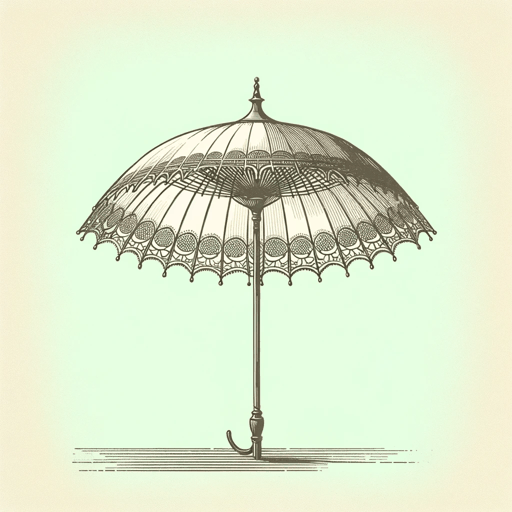50 pages • 1 hour read
Émile Zola, Transl. Gerhard KrügerNana
Fiction | Novel | Adult | Published in 1880A modern alternative to SparkNotes and CliffsNotes, SuperSummary offers high-quality Study Guides with detailed chapter summaries and analysis of major themes, characters, and more.
Summary and Study Guide
Overview
Émile Zola’s Nana, published in 1880, is the ninth novel in Zola’s 20-volume Les Rougon-Macquart series, published between 1871 and 1893. Taken together, these 20 novels depict the impact that heredity and environment can have on an individual’s life. They are meant to faithfully represent French society during the Second French Empire, the reign of Napoleon III, which lasted from 1852-1870. Zola considered himself a literary naturalist, meaning that he wanted to represent life not as the outcome of supernatural or divine forces, but as the outcome of biological and social forces.
Nana, one of the most famous novels in the Rougon-Macquart series, was both popular and controversial at the time of its publication because of its frank descriptions of bodies and sexuality. Initially depicted in another of the series’ novels, L’Assommoir, the character of Nana rises from a childhood as the daughter of a lower-class family beset by alcoholism and starvation to become the most elite and popular courtesan in all of Paris. However, in ascending the social ladder, she drags down every lover she has financially and spiritually. Ultimately, Zola uses her story as an indictment of the excesses of the Second Empire, including what he saw as excessive female sexual freedom.
This study guide uses the 2020 Oxford World’s Classics edition, translated from the original French by Helen Constantine.
Plot Summary
Eighteen-year-old Nana makes a magnificent debut as Venus at the Théâtre des Variétés, a Parisian theater. Although she does not sing or act particularly well, the whole audience is captivated by her beauty, especially when she takes the stage practically naked in the third act. Most of the book’s recurring characters are present for this debut, either as Nana’s fellow actors or as audience members, including wealthy banker Steiner, journalist Fauchery, 17-year-old Georges Hugon, and a chamberlain to the Empress, the Comte Muffat de Beuville.
The next day, Nana gradually realizes she was an even bigger hit than she thought as her apartment is flooded with male visitors coming to call on her. Having many male visitors is no strange phenomenon to Nana, who is a sex worker as well as an actress. Even for her, though, the volume of visitors becomes overwhelming. The next night, guests gather at a salon in the home of Comte Muffat, over which his wife Sabine presides. Throughout the evening, Fauchery tries to accomplish a task Nana sent him to do: invite Muffat to a dinner party at her house the next evening. Fauchery finally manages to do so, with the help of another guest, Vandeuvres, but the extremely religious Muffat refuses. However, Nana does successfully lure Steiner to the dinner party. The dinner party is a disaster, with far too many guests to fit comfortably in Nana’s home.
Many weeks later, the Prince of Scotland pays a visit to the Théâtre des Variétés to see Nana’s star turn. All of Nana’s fellow actors are aware that the Prince has been one of Nana’s lovers since his arrival in Paris. Though Muffat has been trying to resist his attraction to Nana because of his religious devotion, he finally gives in when he visits the backstage area with the Prince, grabbing her and kissing her. She invites him to visit her at home sometime.
Muffat begins an affair with Nana. This affair continues for many months, but Nana quickly grows tired of Muffat. She learns from an old friend that Muffat’s wife Sabine is rumored to be having an affair with Fauchery. Feeling sorry for Muffat, Nana tells him about the affair, which leads to a bitter argument. She cannot get Muffat to leave her, however, until she reveals that she has been sleeping with her fellow cast member Fontan.
Nana’s relationship with Fontan gradually devolves into constant physical abuse. He hits Nana and steals from her, leading her to return to the kind of sex work she used to do—advertising herself on the street for one-night encounters rather than being a kept woman. She finds solace in a fellow sex worker and friend Satin. Satin is bisexual; while Nana is initially disturbed at the thought of being lesbian, she gradually becomes more interested in being Satin’s lover. After almost getting arrested for sex work one night, she gives up her life with Fontan.
Nana reconciles with Muffat and skillfully negotiates a return to the Théâtre des Variétés in the part of a respectable lady. No one thinks this is a good idea, as she can play the role of the courtesan much more naturally. She is humiliated when her performance is widely denigrated. Furious, she vows to take her revenge by rising to the top of Parisian society.
Nana becomes again the most popular courtesan in Paris and has all of her lovers firmly under her control. She now manages to carry on affairs with Satin, Muffat, Vandeuvres, Georges, and Georges’s brother Philippe all at once. During a much-anticipated horse race, Vandeuvres’s entire fortune rests on one of his horses, named after Nana, performing well. This horse wins, but Vandeuvres did not lay his bet correctly, leading to his ruin. He shuts himself in the stable with his horses and sets it on fire, burning himself and them alive.
As Nana’s star ascends ever higher in Parisian society, her household falls further and further into debt and disorder. Her servants barely hide their frequent theft from her, and despite the thousands of francs Nana demands from her lovers, she cannot manage money well enough to get out of debt, constantly spending on luxuries. At one point, Georges, distressed that she will not agree to marry him, unsuccessfully attempts to kill himself in her bedroom. Finally, Nana crosses a line Muffat cannot tolerate: She sleeps with his father-in-law, the Marquis de Chouard. Muffat leaves her. Though he has exhausted almost his entire vast fortune, he is relieved to have broken free from Nana’s spell.
In the novel’s final chapter, Nana returns to Paris after a long absence. Upon her arrival, she visits her son, who has smallpox and contracts the disease herself. Her son dies and she is soon at death’s door. Her fellow courtesans gather around her bedside, but all the men she had affairs with refuse to see her, afraid of catching the disease. At the same time, France has just entered a war with Prussia, and a loud mob of Parisians is gathering outside. Nana dies, her famous beauty hopelessly marred by the disease that has rotted her flesh, as her countrymen march to war in the streets outside.








Related Titles
By these authors
Featured Collections
Beauty
View Collection
Books that Feature the Theme of...
View Collection
Books that Feature the Theme of...
View Collection
Challenging Authority
View Collection
Class
View Collection
Class
View Collection
European History
View Collection
French Literature
View Collection
Historical Fiction
View Collection
Nation & Nationalism
View Collection
Naturalism
View Collection
Power
View Collection
Realism
View Collection
School Book List Titles
View Collection
SuperSummary Staff Picks
View Collection
The Power & Perils of Fame
View Collection


